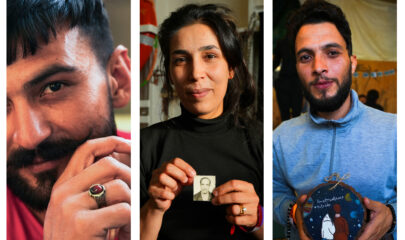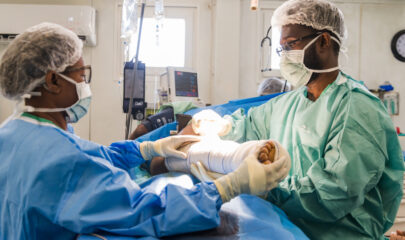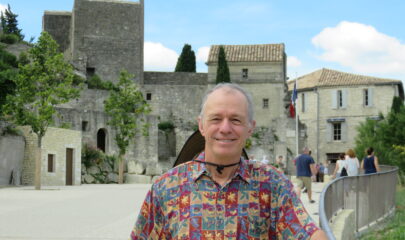“Human health will be increasingly damaged by the negative consequences of the climate emergency,” says Dr. Christos Christou, Doctors Without Borders/Médecins Sans Frontières (MSF) international president. “Failing to act now would mean breaking our medical and ethical obligations towards patients and communities.”
In addition to providing medical care to people most in need – regardless of the reason for their need – MSF increasingly bears witness to the intensifying effects of the climate emergency and environmental degradation on human health. We share data, MSF staff experiences as well as the voices of communities we work with and patients we assist, to raise awareness and provoke change.
MSF recognizes that climate change exacerbates health and humanitarian needs. As such, we are adapting our operations, working to measurably reduce our environmental impact and speaking about what we see and do – aiming to ensure we’re responsible, responsive and future-proofed.
“Getting discouraged is not an option. We choose hope and we choose to act.”
MSF has responded to unprecedented floods in Mozambique, South Sudan and South Africa, where people experience displacement, infectious and waterborne disease outbreaks, as well as water and food insecurity. Scientists confirm extreme weather events are becoming more intense and frequent, while spikes of malaria and dengue will increase. People made vulnerable by other crises or neglect stand to be made even more vulnerable. We observe these and other health consequences in our hospitals and clinics.
In Chad, lack of rainfall and water scarcity worsens an already dire malnutrition situation.
“There was very little rain this year,” says Khadija Iba, whose child is an MSF patient. “It was worse than any year I remember. We hardly harvested anything…everything costs almost twice as much now. We don’t have enough to eat.”
MSF provides therapeutic care for malnourished children and nutrition support to pregnant and lactating women in Hadjer Lamis province in Chad. Our colleagues are also concerned.
“It’s a continuous crisis, no longer just a hunger gap,” says Ibrahim Barrie, MSF medical team leader. “At the same time,
funding for nutrition and food security in Chad has gone down. We need a better response to prevent children from dying from malnutrition.”
In November 2021, MSF participated in COP (Conference of the Parties) for the first time – the only global agreement and gathering for tackling climate change. As part of MSF’s delegation to COP26, Stephen Cornish, former executive director of MSF Canada and current general director of MSF Switzerland, attended, including for the session called Futures Lab: Climate-Smart Healthcare for a Healthier Planet.
“Getting discouraged is not an option,” says Cornish. “We choose hope and we choose to act.”


